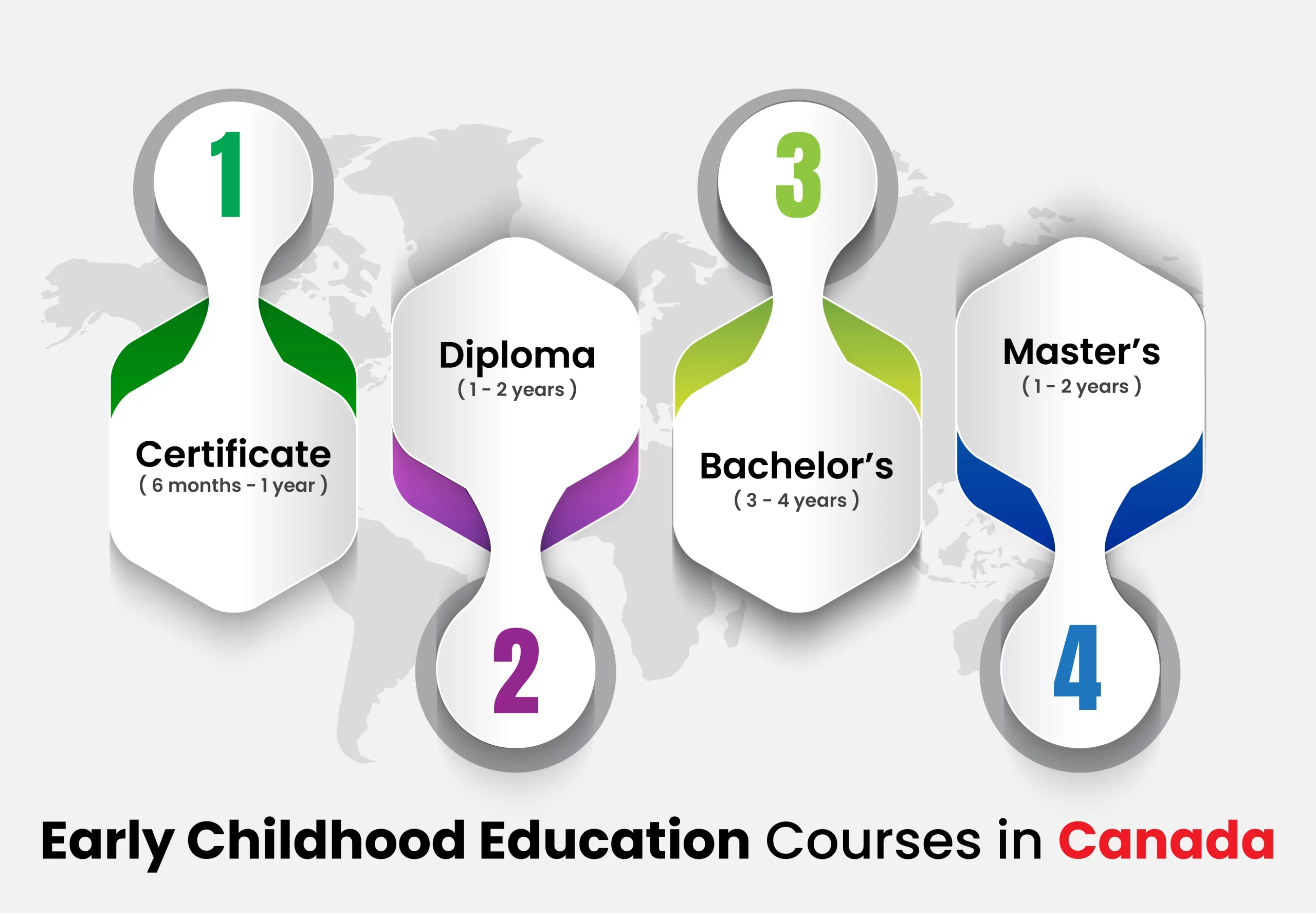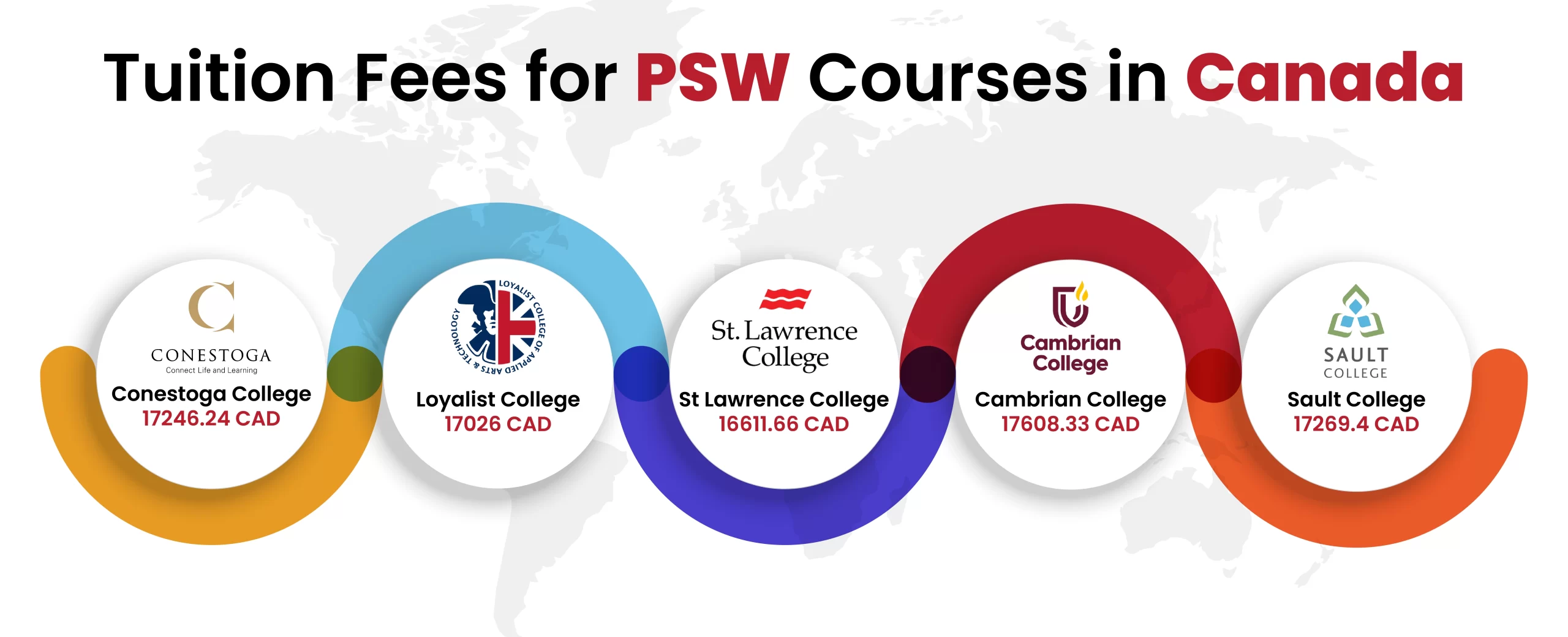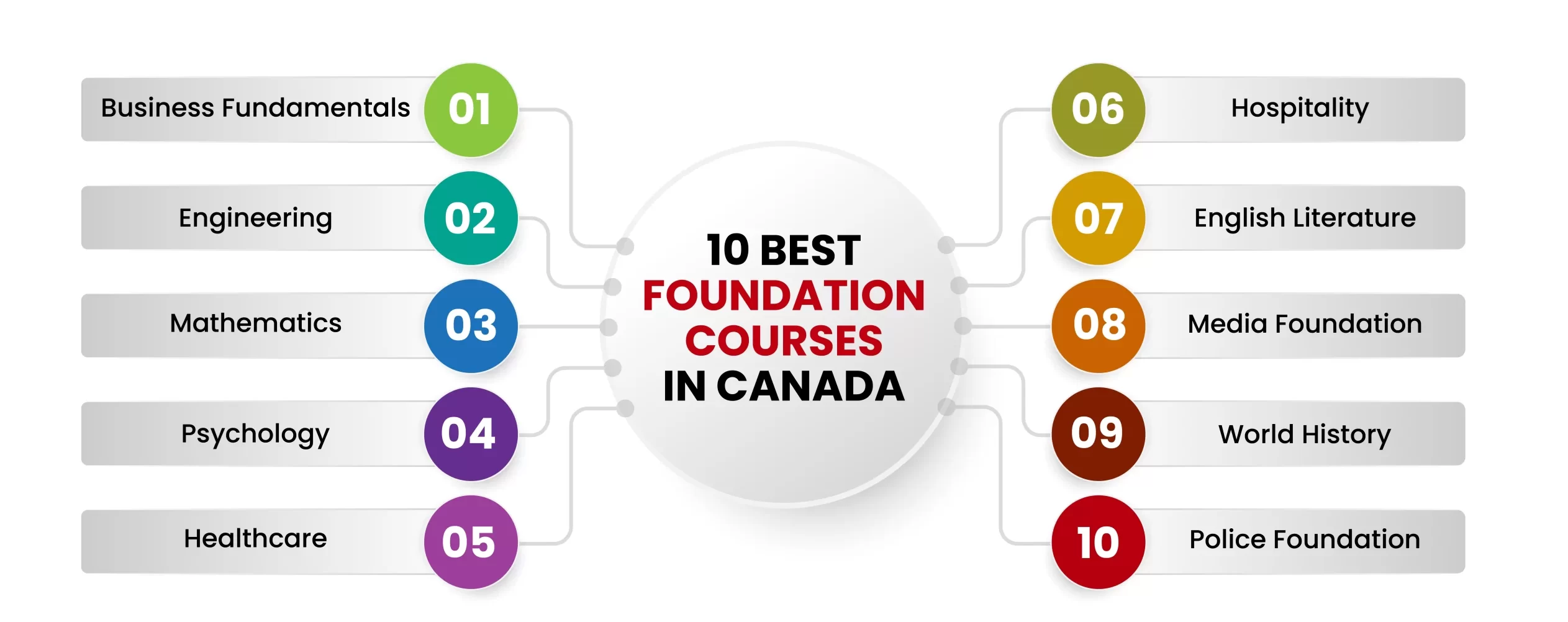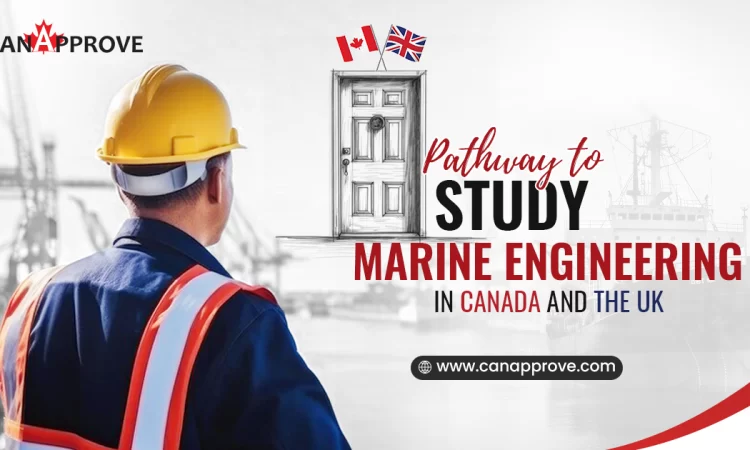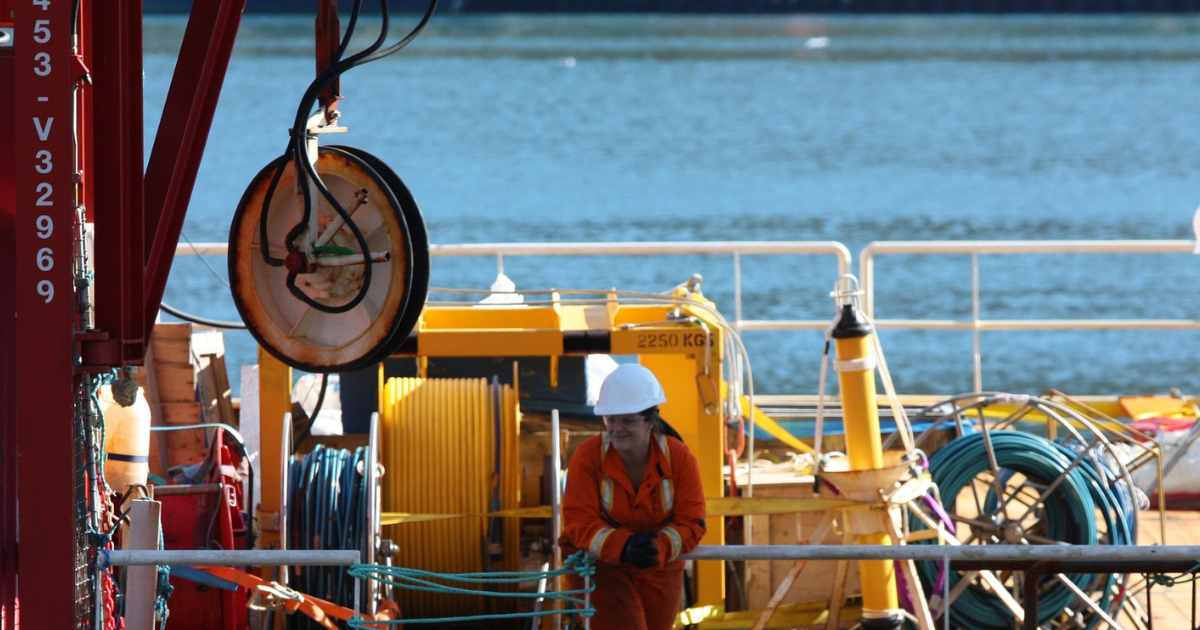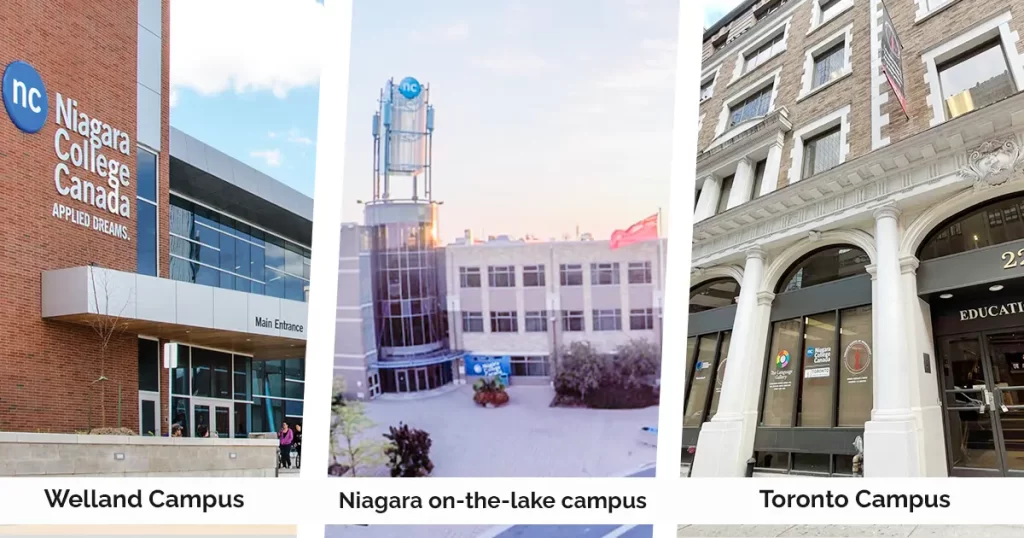Canada is one of the top preferred countries for international students who decide to study abroad. In 2023, over 900,000 students enrolled for Canada education, and this trend is continuing to grow. With its excellent education system and its abundant research opportunities, Canada becomes the center-point for international students who carry the hope of a dream within themselves. Some of the best courses in Canada are also in high demand. These in-demand courses in Canada are determined in accordance with the job market and global needs. This raises the question: What are the in-demand courses?
Hence, this blog explores high-demand programs in Canada, provides information on short courses, and discusses how to choose the right course. It concludes with a section addressing frequently asked questions.
Table of Content
1Which Courses are In Demand in Canada2In Demand Courses in Canada for International Students3Short Term Courses in Canada4Scholarships in Canada for International Students5Average Salary in Canada6Why is it important to Choose the Right Course7Conclusion8Frequently Asked Questions
Which Courses are In Demand in Canada
Many international students dream to study abroad in Canada for its world-class education and its diverse culture. Students pursuing a degree in Canada often have a primary goal: to secure better job opportunities and establish their presence in society. Therefore, the following list outlines the in-high demand courses in Canada:
1. Engineering
2. Computer Science & Information Technology
3. Business Administration & Management
4. Medicine & Health
5. Environmental Science & Sustainability
6. Architecture & Urban Planning
7. Finance & Accounting
8. Law
9. Nursing & Healthcare Management
10. Psychology & Counselling
11. Physiotherapy
12. Media & Journalism
13. Human Resources
14. Project Management
15. Graphic Design
16. Tourism & Hospitality
Moreover, the domestic as well as the foreign students in Canada have a provision to work 20 hours part time while studying in Canada, which is considered the best country to study abroad.
In Demand Courses in Canada for International Students
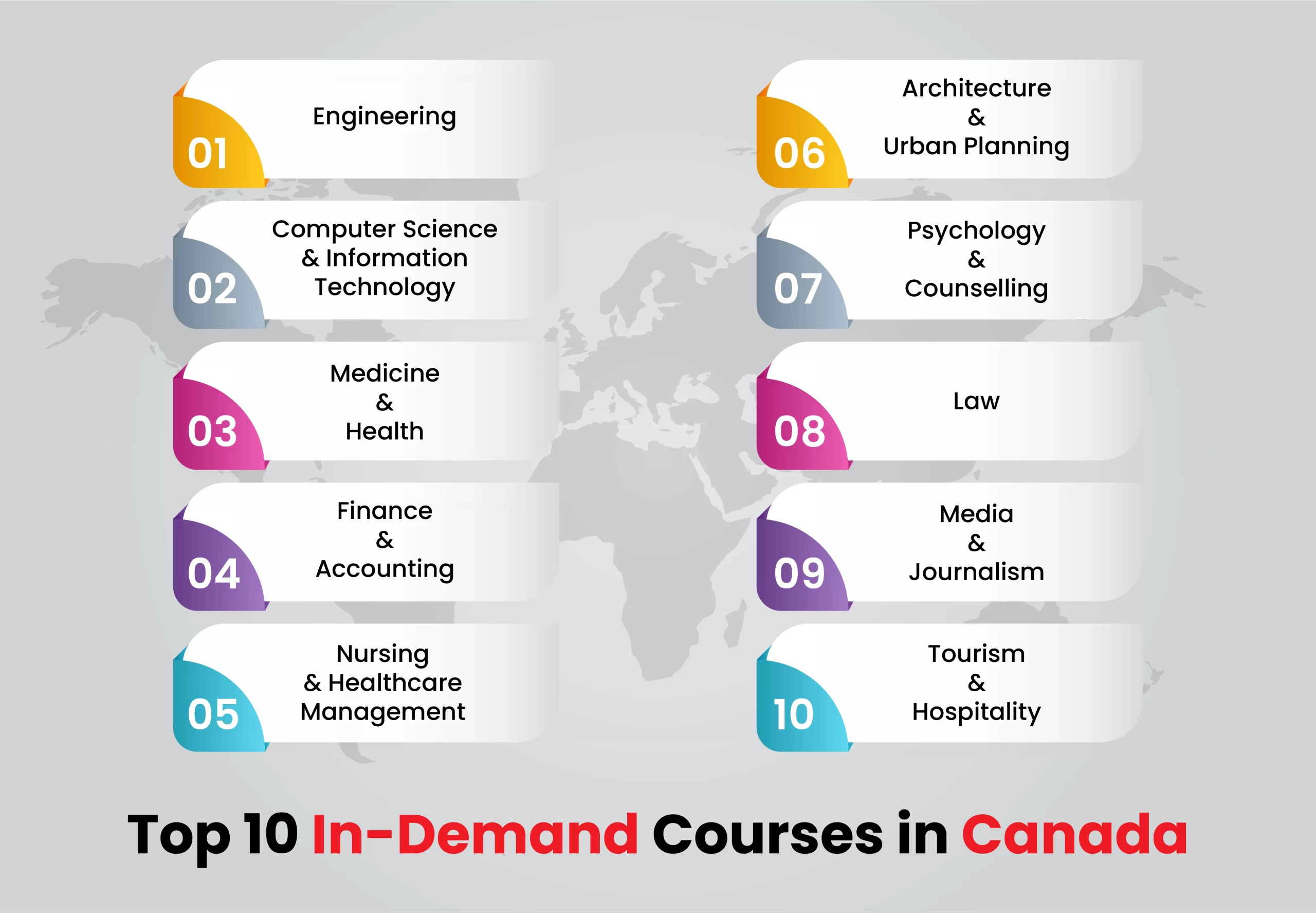
The list above highlights the popular courses in Canada that attract international students. Within the list, some in-demand courses offer comparatively better job opportunities. Hence, one can say that these courses are “Canada Job Oriented Courses.” Therefore, the following briefs out the in-demand courses in Canada in a comprehensive manner:
1. Engineering
Engineering is a popular choice for international students applying for a Canada Study Permit. Since there are a wide number of top universities in Canada, engineering is considered an evolving course. With a diverse range of specializations, such as civil, mechanical, and electrical engineering, students can tailor their education to match their interests and career goals.
| Eligibility / Basic Requirements |
|
| Top Universities |
|
| Degrees to Pursue |
|
| Job Opportunities |
|
| Top Employers |
|
2. Computer Science & Information Technology
Similar to Engineering, Computer Science & Information Technology are among the most popular courses in Canada for international students. As our world becomes increasingly systematic, there is a growing need for advancements in technology. In response to this demand, top public universities in Canada offer relevant programs to help students develop the skills needed to thrive in the tech industry.
| Eligibility / Basic Requirements |
|
| Top Universities |
|
| Degrees to Pursue |
|
| Job Opportunities |
|
| Top Employers |
|
3. Medicine & Health
As per the World Health Organization (WHO), the ratio of doctor-to-population is 1:1000. Even though Canada has surpassed the ratio of 2.7 doctors per 1,000 people, the demand for doctors and physicians continues to rise. The pandemic underscored the need for more healthcare professionals in every country, including Canada. In response, universities and colleges across Canada offer several top programs at various educational levels to meet this growing demand. A student with a valid Canada visa can enroll in a medicine course.
| Eligibility / Basic Requirements |
|
| Top Universities |
|
| Degrees to Pursue |
|
| Job Opportunities |
|
| Top Employers |
|
4. Finance & Accounting
Finance & Accounting programs, one of the in-demand courses in Canada, offer a comprehensive foundation in financial management, reporting, and analysis, equipping students with essential skills for successful careers in the industry. The course combines the theoretical knowledge with practical applications to prepare the students for a dynamic fiscal landscape. Being one of the competitive fields, the Canada International students pursuing the course must excel academically and develop strong analytical skills to succeed in a dynamic job market.
| Eligibility / Basic Requirements |
|
| Top Universities |
|
| Degrees to Pursue |
|
| Job Opportunities |
|
| Top Employers |
|
5. Nursing & Healthcare Management
According to the data, the number of senior citizens aged 60 and above is steadily increasing, which could lead to significant challenges in the future. Consequently, this course is becoming one of the most in-demand courses in Canada, given the growing need to address the needs of an aging population. The universities offer nursing programs that deliver high-patient care, promote health and well-being, and lead healthcare effectively. For students worried about tuition fees, there are numerous Canada scholarships available to help ease the financial burden.
| Eligibility / Basic Requirements |
|
| Top Universities |
|
| Degrees to Pursue |
|
| Job Opportunities |
|
| Top Employers |
|
6. Architecture & Urban Planning
Architecture and urban planning in Canada showcase a rich tapestry of cultural influences, combining Indigenous heritage, colonial history, and contemporary design. Since the Canadian cities emphasize sustainability, they tend to focus on eco-friendly materials and technologies in their buildings. Additionally, urban planning prioritizes liveability and inclusivity, often incorporating transit-oriented development and vibrant public spaces. This dynamic field seeks to balance heritage with innovation, creating communities that are environmentally responsible and socially engaging.
| Eligibility / Basic Requirements |
|
| Top Universities |
|
| Degrees to Pursue |
|
| Job Opportunities |
|
| Top Employers |
|
7. Psychology & Counselling
The Psychology & Counselling course is one of the in-demand courses in Canada that emphasize mental health and well-being, reflecting a country’s diverse population. The course covers essential theories, practices, and ethical considerations in mental health care. The curriculum includes research methods and evidence-based practices that prepare graduates to effectively support individuals on their mental health journeys.
| Eligibility / Basic Requirements |
|
| Top Universities |
|
| Degrees to Pursue |
|
| Job Opportunities |
|
| Top Employers |
|
8. Law
As advocates of justice, fairness, and equality, international students actively choose to come to Canada to pursue a law degree. The curriculum focuses on critical thinking, legal research, and writing skills, often incorporating case studies and practical experiences such as internships or moot court participation. The course empowers students for effective navigation of the complex legal system in Canada.
| Eligibility / Basic Requirements |
|
| Top Universities |
|
| Degrees to Pursue |
|
| Job Opportunities |
|
| Top Employers |
|
9. Media & Journalism
Media & Journalism occupies an important place in Canadian education. As per the data, the Canadian media market had reached 64 billion in 2020. Given the aftermath of the pandemic, the number is expected to rise. Not only bachelors, pursuing masters in Canada too helps to rope up in a reputable role in the media and journalism sector. Moreover, the program was tailored in a way that the students exposed themselves in the practical realm to explore the contemporary aspects of journalism.
| Eligibility / Basic Requirements |
|
| Top Universities |
|
| Degrees to Pursue |
|
| Job Opportunities |
|
| Top Employers |
|
10. Tourism & Hospitality
The Tourism & Hospitality course explores the travel industry and effective hospitality management. The curriculum includes hands-on experiences through internships and projects, covering topics like event management and hospitality technology. Moreover, students learn about tourism trends, sustainable practices, and cultural influences while developing skills in marketing, operations, and customer service. Overall, the program equips students to thrive in Canada’s vibrant tourism sector.
| Eligibility / Basic Requirements |
|
| Top Universities |
|
| Degrees to Pursue |
|
| Job Opportunities |
|
| Top Employers |
|
Short Term Courses in Canada
In addition to full-time courses, Canada also offers a variety of short courses. Like the in-demand courses in Canada, international students can opt for the short courses too. The major reasons for enrolling in short courses are affordability, quick job market entry, less program duration, and so on. To provide a broader perspective, here’s a list of the top in-demand short courses for international students:
1. Communication Course
2. Human Resource Management Course
3. Global Logistics Management & Professional Communication
4. Software Engineering
5. Business Administration
6. Digital Marketing and Social Media.
Scholarships in Canada for International Students
On average, the cost of studying in Canada ranges from $7000 to $40000 across different credentials. This excludes the living and accommodation costs. From the above, it is clear that a student who turns the valid Canada student visa application into a success may struggle to cover the financial expenses incurred while studying in Canada. To alleviate the financial burden, there are scholarships in Canada that help reduce expenses, as outlined below:
Government Scholarships:
-
- Banting Postdoctoral Fellowships
- IRDC Research Awards
- Vanier Canada Graduate Scholarship Program
Non-Government Scholarships:
-
- Anne Vallee Ecological Fund
- Surfshark Privacy and Security Scholarship
- Trudeau Scholarships and Fellowships
University-Based Scholarships:
-
- University of Toronto Ontario Graduate Scholarships
- University of Waterloo International Funding
- McGill University Scholarships and Student Aid.
Average Salary in Canada
International students, after completing graduation in Canada, employ themselves as per the course and credential they’d enrolled in. Students enrolled in in-demand courses in Canada may receive a subjective salary. Hence, for a broader picture, the following table infers the average salary of a graduate who pursued the in-demand courses:
| S.No | In-Demand Courses | Average Salary (CAD/year) |
|---|---|---|
| 1 | Engineering | 84,900 |
| 2 | Computer Science & Information Technology | 80,000 |
| 3 | Medicine & Health | 210,000 |
| 4 | Finance & Accounting | 90,300 |
| 5 | Nursing & Healthcare Management | 76,100 |
| 6 | Architecture & Urban Planning | 96,100 |
| 7 | Psychology & Counselling | 136,000 |
| 8 | Law | 126,000 |
| 9 | Media & Journalism | 62,400 |
| 10 | Tourism & Hospitality | 77,200 |
Why is it important to Choose the Right Course
There are three intakes in Canada for international students: Fall, Winter and Summer. A student can apply to a specific university multiple times in the subsequent intakes to increase their chances of a successful application. However, the student must choose the right course to pursue. This right course serves as a foundation for the student to build a fortified career. Also, there are other reasons to choose the right course, which are as follows:
- Selecting the right course and qualification can significantly enhance a student’s chances of landing their dream job.
- If a student chooses a course that doesn’t align with their dream job, they risk wasting both time and money. Additionally, they will need to acquire the necessary skills separately to pursue their desired career.
- Most importantly, choosing the right course can significantly reduce educational stress. Furthermore, it provides students with a clear path post-graduation. Recent surveys reveal that those who study in Canada and excel in their fields often achieve promotions to higher promotions more rapidly.
- One of the main reasons for visa refusal is selecting an inappropriate course. Applicants whose course of study choices are weak may face denial of their study visa for Canada.
Therefore, choosing the right course of study not only benefits students in the present but also shapes their future. To make an informed decision, thorough research and analysis are essential. If students need guidance, they can seek assistance from an expert counsellor like CanApprove for studying abroad.
Conclusion
In conclusion, pursuing in-demand courses in Canada offers international students a valuable opportunity to enhance their skills and improve their career prospects. With a strong focus on quality education and diverse programs, Canada is an excellent choice for aligning studies with market needs. By choosing the right course, students can secure a rewarding future and navigate the challenges of studying abroad with confidence. For a student who wishes to seek guidance from scratch, consider CanApprove.



